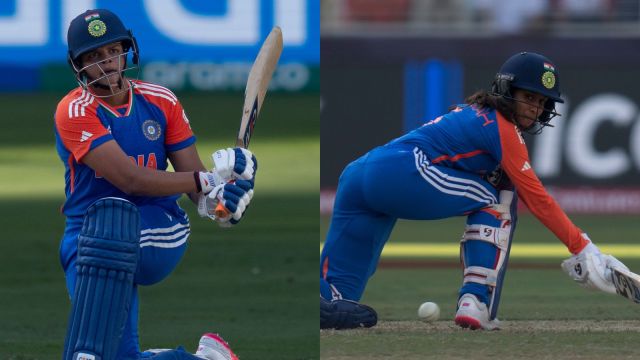T20 World Cup: Chamari Athapaththu and Smriti Mandhana discuss their personal batting challenges.

These are two of the best left-handers in the game, elite openers, and, on their day, true game-winners. And the success of their respective teams depends on them both. Chamari Athapaththu and Smriti Mandhana share many similarities. Another similarity emerged on Tuesday in Dubai as the two prepared for their news conferences in front of the crucial match between Sri Lanka and India at the ICC Women’s T20 World Cup. Given the challenging run-scoring conditions in the United Arab Emirates, both of them were left questioning their own batting form.
The fate of the losing squad in the competition will probably be determined by the replay of the Asia Cup final on Wednesday. Having lost two of their first two matches, Asian champions Sri Lanka have underperformed thus far and find themselves in a considerably more vulnerable position than India. India’s condition is also not ideal, even though they started off well by defeating Pakistan. India managed to chase down the mark in just 18.5 overs after restricting Fatima Sana’s team to 105, but it didn’t really help them on the Net Run Rate aspect because they suffered a crushing loss to Sri Lanka.
Mandhana was questioned over the side’s NRR once more. She acknowledged that it was on their minds following the Pakistani encounter, but she and Shafali Verma were unable to get going in the powerplay.
During the press conferences, the conditions were discussed frequently, and Athapaththu went into further depth about her difficulties. “As the team’s captain and first batter, I believe I have the most responsibility; in the last two games, I was unable to provide the team with the momentum and opening bat. Though I believe I provided the squad the early advantage in a few previous games, I was unable to do so in the final two. The SL captain stated, “I am aware that my failure has a significant impact on the team. She also mentioned asking herself questions while in the room, such as why South African batters, for example, have been able to adjust to the circumstances more successfully.
































